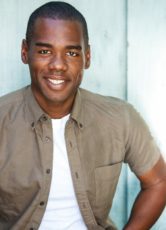
If there is one skill actors simply must learn to develop, it’s their ability to memorize lines. However, individual actors take charge of just how thoroughly they know their lines and how strictly they feel the need to stick to the script. Some thespians firmly anchor their performances on every single written word, whereas others view those words as somewhat of a rough estimate.
Improvising can bring freshness.
“Love Actually” star Hugh Grant noticed quite a difference between English and American actors as it pertains to sticking to the script. Grant told BAFTA, “I’m glad I made some American films, because it’s interesting watching American actors. They’re much less reverent in terms of the script than British actors. Especially in comedies, they’re endlessly improvising, doing different things. They don’t really care too much what was in the script. They don’t care too much about whether being told to stand. And I think that’s very useful, and people should do more of that in British films because it comes back to freshness. The camera loves fresh—anything new, anything that hasn’t been pre-rehearsed.”
When laziness sets in.
“Godless” actor Jeff Daniels described two different avenues he’s taken regarding memorization. On the “Off Camera Show,” he described the first, a more relaxed approach: “There’s a difference between knowing [the lines] and knowing what you’re going to do with it, and I just know it. On a lot of movies, and I’ve done this…you can kind of memorize it and make up your own and kind of sort of know it and then kind of find it in one, two, or three [takes]. And if you get more takes than that, terrific. There’s a laziness that can set in. And I’m just going to paraphrase this part because it’s really not written very well. So now it gets a little sloppy, and now you’re doing things that you’ve done in other movies because you’re improvising, and you kind of go to your default thing that you do.” In stark contrast to that approach is memorizing the lines with strict discipline. Daniels explained, “Or you can just sit there with that script and drill it. It’s repetition. It’s the time spent. And I remember in season 3 of “The Newsroom,” knowing that if I’m able to whip it, rattle it off word-perfect, then I know it. If I can’t do that, and I stumble at a certain [part], then I don’t know that section well enough. Get in there and do the mechanics of learning. This particular line has three words that start with “p.” So you gotta go back in and do the part that isn’t fun. You’ve got to build that inside you so you can now get on top of that and dance in any sort of direction you want because you have the foundation of knowing it.”
Make memorization a priority.
“Lawrence of Arabia” actor Peter O’Toole was famous for receiving seven Oscar nods as well as his legendary capacity for boozing. With all that imbibing, how was he able to pull off such excellence in acting? Was he improvising at times? Fifteen years ago, he shared his method of learning lines in an interview with Charlie Rose: “The old-fashioned word for it was ‘study.’ You go alone, you have no observer, no interlocutor. An unobserved, uninhibited, private study is the backbone of any fine actor or actress.” With all his studying, O’Toole always came to set knowing his lines inside and out, even if he had a drink or two.
Find a style of memorization that works for you.
Samuel L. Jackson has found a way to keep his performances fresh that many would find hard to pull off. The Nick Fury actor told The Associated Press what works for him: “My everyday memory is not something I get paid to use, so I can afford to lose things and not worry about it. My pay-for-play memory is sharp as a tack. I’m sort of from that school that I read [the material] three times and I know it. And generally I don’t say the lines out loud until the first time I rehearse it in front of a camera. And once you start movement, it’s easy to remember where you are when you say something. That makes it totally simple. And certain movies, it’s like come on. It’s not like you’re doing a play and you have to remember something from beginning to end every night. A page and a third a day—come on, piece of cake.” It’s rare that someone can memorize lines after only three reads, but clearly this strategy works like a charm for Jackson.
Jim Parsons of “The Big Bang Theory” famously had to memorize outrageous, creatively worded scientific dialogue. The challenge made ad-libbing not a viable option on set. So Parsons would make flashcards; on one side he’d write the cue line and who says it, while on the back of the card he’d write his own line. “I pace around my house, and I drill them like some sort of ballet dancer learning moves, largely because I don’t know a lot of what I’m talking about. And so I need the muscle memory to be in my mouth at least to be really ready to go, because if I do think about it, A) the right words never will occur to me, and B) the ones I do will just be wrong.”
Everyone’s mind works differently when it comes to learning lines. Here are 6 effective tips for memorization.
Want to get your acting career started? Sign up or login to Casting Frontier and start auditioning today!
Related articles:
Casting Director Kim Coleman on Casting ‘The Good Lord Bird’
Audition Terms and Their Definitions
Inspirational Life Advice From Celebrated Actors




